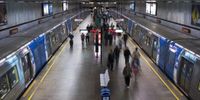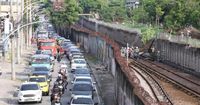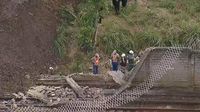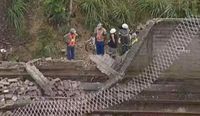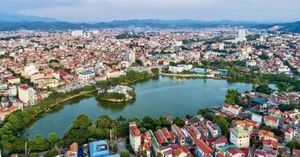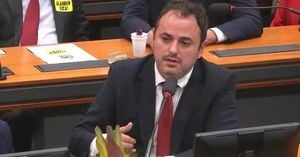On the morning of Wednesday, April 9, 2025, chaos erupted in Rio de Janeiro as a wall collapsed near the Engenho da Rainha metro station. This incident, which occurred around 7 a.m., resulted in the closure of 11 metro stations, severely disrupting the daily commute for thousands of passengers during rush hour.
The collapse happened while teams from the concessionaire Águas do Rio were conducting emergency repairs on a large pipeline in the area. The work was aimed at fixing a leak, but it inadvertently led to the structural failure of the wall, which fell onto the metro tracks, blocking the trains.
As a result, the Metrô Rio was forced to suspend operations on a significant stretch of Line 2, impacting stations including Pavuna, Engenheiro Rubens Paiva, Acari/Fazenda Botafogo, Coelho Neto, Colégio, Irajá, Vicente de Carvalho, Inhaúma, Del Castilho, and Engenho da Rainha. Commuters were left scrambling for alternative transportation as the metro service came to a standstill.
Ingrid Marques, a resident of Coelho Neto who relies on the metro, expressed her frustration: "I left home at 6 a.m. but only managed to reach work by 8 a.m. due to the chaos caused by the closure." Many others echoed her sentiments, sharing their struggles on social media as they faced overcrowded buses and long waits.
The situation prompted the Metrô Rio to issue a statement around 7:30 a.m., attributing the incident to Águas do Rio. They reported that they had to de-energize the metro line to allow emergency teams to assess the damage and begin the cleanup process. By 11 a.m., operations on Line 2 were reportedly restored, with all stations expected to return to normal service shortly thereafter.
However, the effects of the collapse extended beyond just transportation. The incident also temporarily disrupted the water supply in 10 neighborhoods, including Engenho da Rainha, São Francisco Xavier, Mangueira, Triagem, Maria da Graça, Inhaúma, Del Castilho, Jacaré, Jacarezinho, and Rocha. Residents were advised to conserve water for essential uses as the supply would take time to normalize.
"We are working diligently to resolve the issue," stated a representative from Águas do Rio. They assured the public that the repair work would be completed by the end of the day, but warned that it could take up to 72 hours for the water supply to return to normal in the affected areas.
The fallout from this incident has raised concerns over the infrastructure maintenance practices of Águas do Rio. Local authorities are now calling for a thorough investigation into the circumstances that led to the wall's collapse. The Transportation Committee of the Legislative Assembly of the State of Rio de Janeiro (Alerj) held a public hearing to discuss the incident and its implications for public safety and transport reliability.
In light of the disruptions, the Supervia, responsible for the city’s rail transport, announced that they would be deploying additional trains and adjusting bus routes to accommodate the influx of passengers seeking alternative travel options. The city’s public transport system is grappling with the challenges posed by the sudden increase in demand as commuters seek ways to navigate around the closed metro stations.
This incident highlights the ongoing vulnerabilities in Rio's infrastructure, particularly in relation to public transport systems that are critical for daily commuters. With many residents relying on the metro for their livelihood, the repercussions of such accidents resonate deeply within the community.
As the city works to recover from this disruption, the focus will remain on ensuring the safety and reliability of its public transport systems. The incident serves as a reminder of the importance of regular maintenance and oversight in urban infrastructure to prevent similar occurrences in the future.
While the immediate crisis may be resolved, the broader implications for public trust in transportation and utility services will take time to mend. Commuters and residents alike are left hoping for swift improvements and assurances that their daily lives will not be subject to such chaos again.
